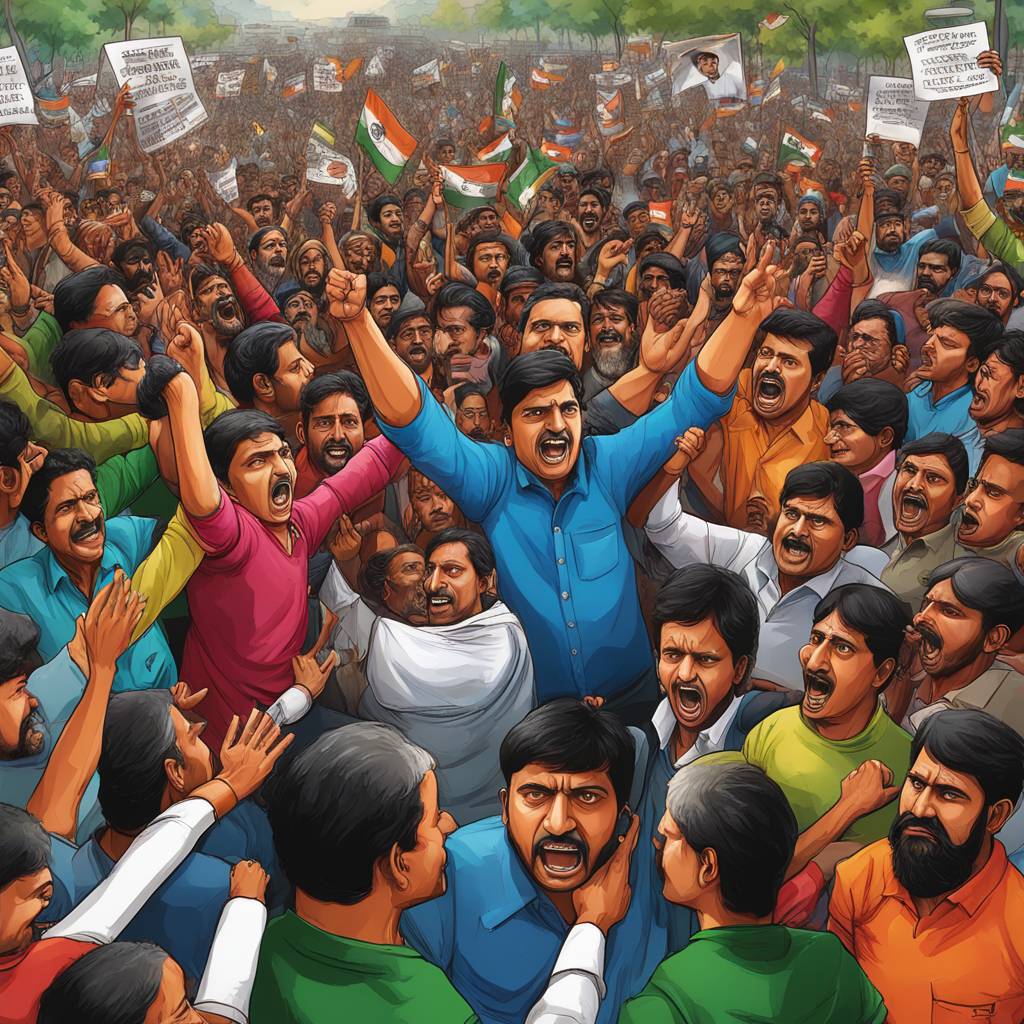Indian police detained dozens of opposition protesters to prevent them from marching to Prime Minister Narendra Modi’s residence on Tuesday. The protesters were demanding the release of their leader, Arvind Kejriwal, who was arrested last week in a bribery case. Around 300 supporters of Kejriwal gathered at India’s Parliament House to begin their march but were surrounded by police. Police detained some protesters and took them away in buses, likely to be released later in the day. The supporters chanted “Long Live Kejriwal” as they were taken into custody. Authorities have since banned the assembly of four or more people in the area that houses key government buildings.
Kejriwal, a top rival of Modi’s and one of the country’s most consequential politicians, was arrested on charges of accepting bribes from liquor contractors nearly two years ago. His party, the Aam Admi Party, denies the accusations and claims they are fabricated by the federal agency controlled by Modi’s government. Kejriwal’s arrest has sparked protests from his supporters, who see it as an attack on their leader and democracy. Kejriwal’s party is part of a broad opposition alliance called INDIA, which is a major challenger to Modi’s ruling Bharatiya Janata Party in the upcoming election.
The protesters who were detained by police were outraged by the arrest of Kejriwal and viewed it as a form of dictatorship. Many believe that Kejriwal has been working for the public good in Delhi and arresting him sends a message that good leaders will face consequences, affecting the common public as a result. The protests have been ongoing since Kejriwal’s arrest and have drawn attention to allegations of political motives behind the charges. The federal agency accused Kejriwal of being the “kingpin and key conspirator” in the liquor bribery case, which he vehemently denies, accusing the agency of manipulating investigative agencies for political reasons.
As India’s general election approaches, tensions between the opposition and the ruling party have heightened, with accusations of misuse of power to harass political opponents. Opposition parties have pointed to a series of raids, arrests, and corruption investigations against key figures, while some probes against former opposition leaders who defected to Modi’s party have been dropped. Despite the BJP denying any deliberate targeting of the opposition, concerns about political motivations behind legal actions against opposition leaders persist. The upcoming election will be a crucial test for both Modi’s ruling party and the opposition alliance, led by Kejriwal and his supporters.


